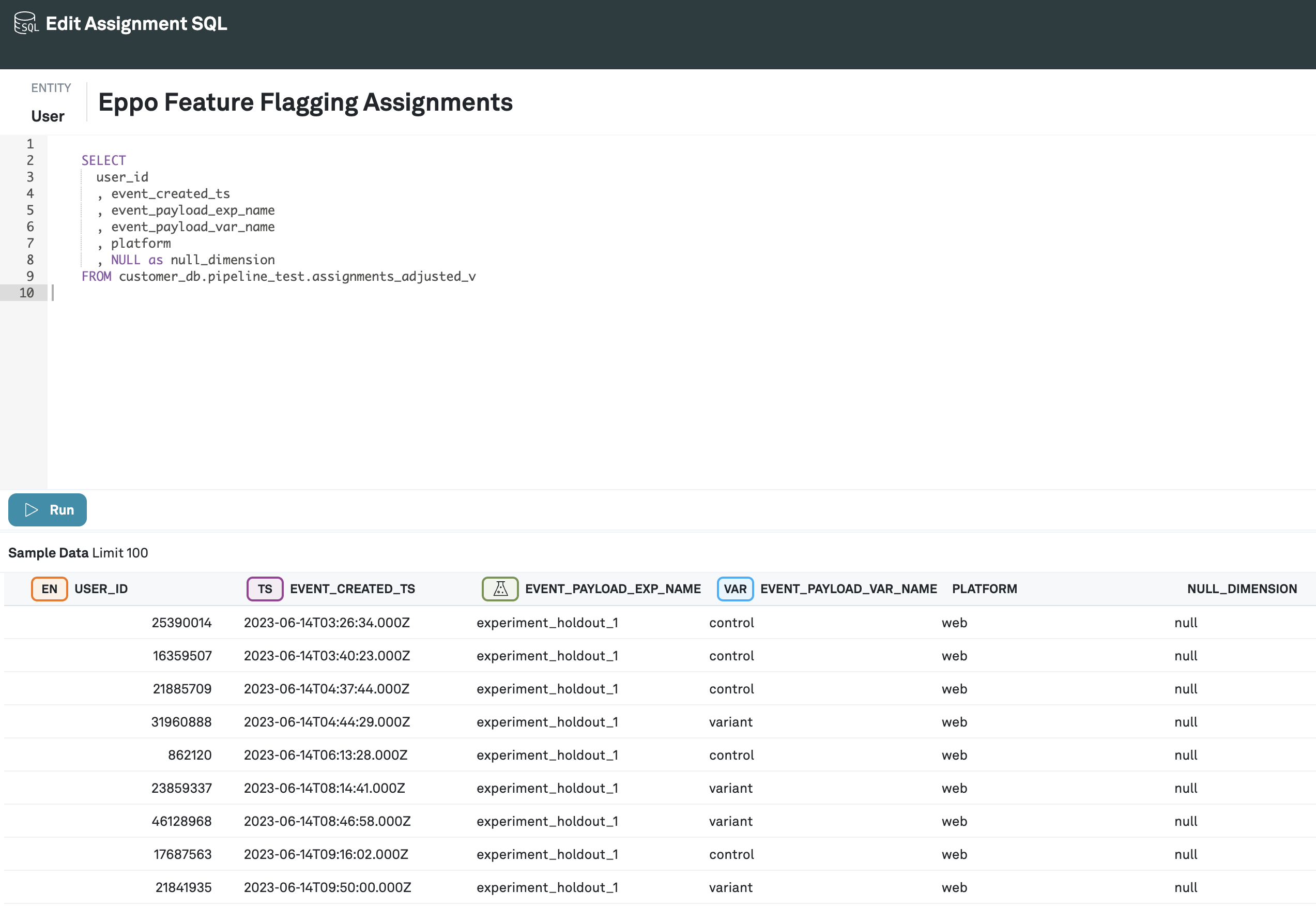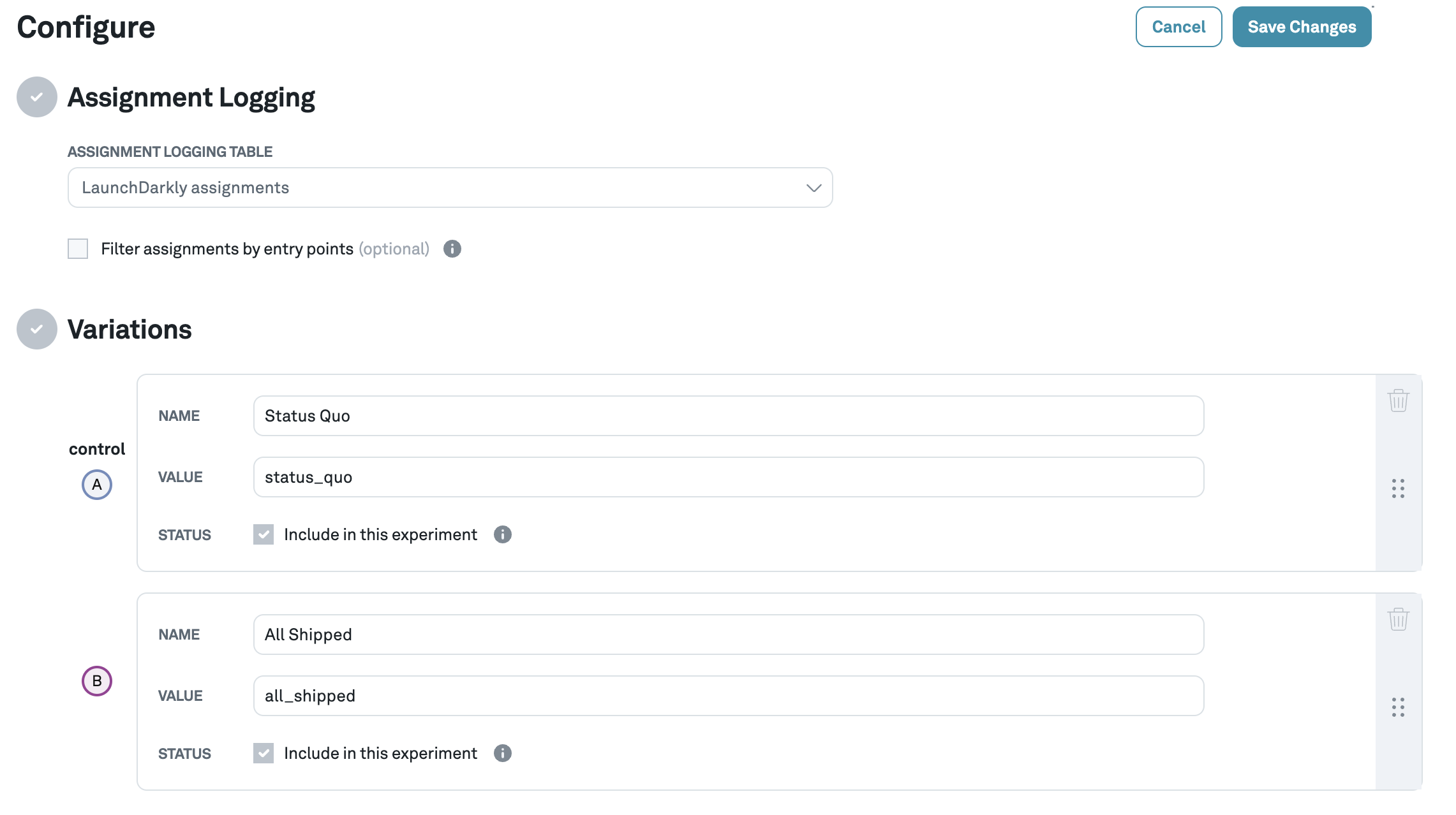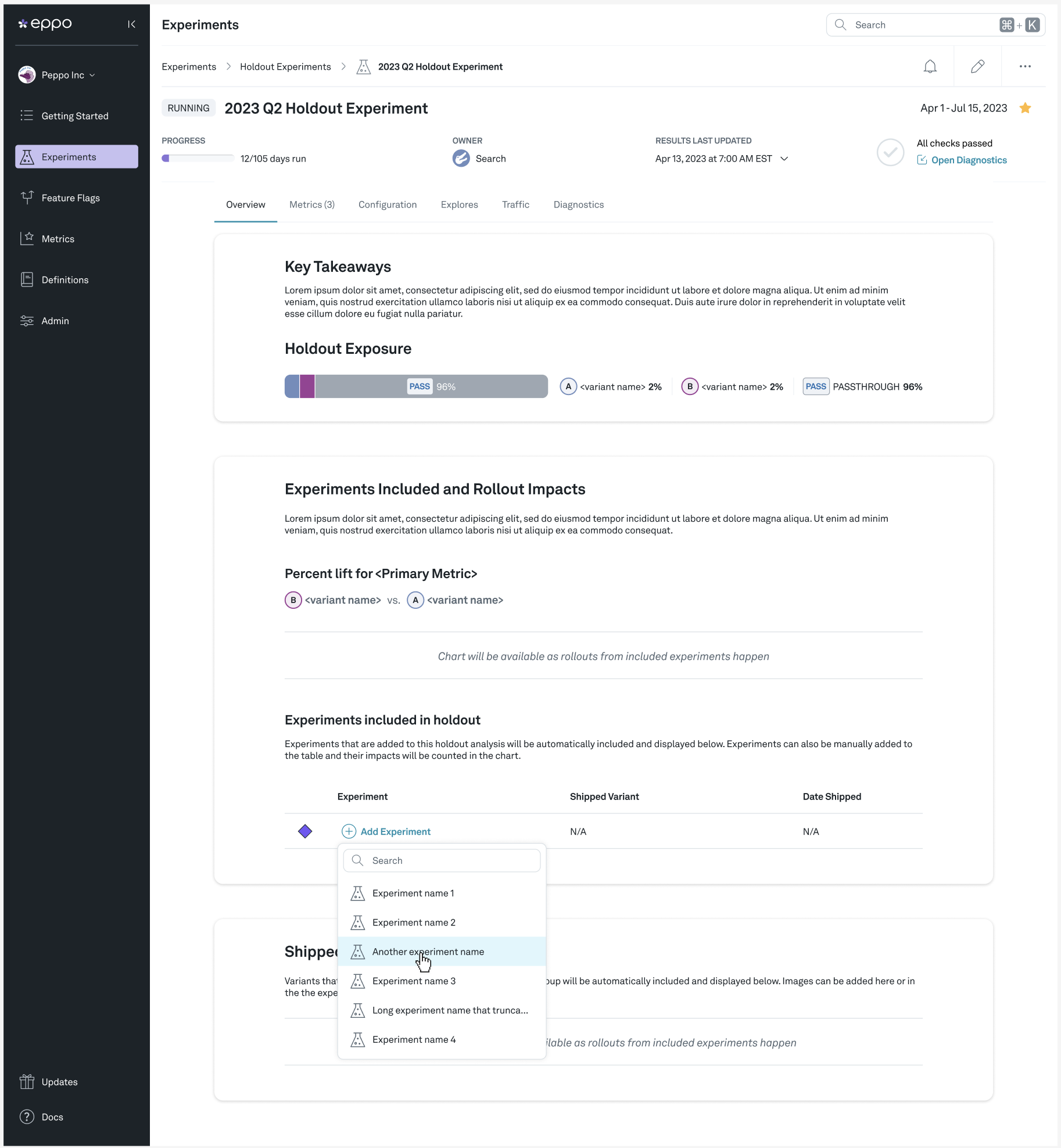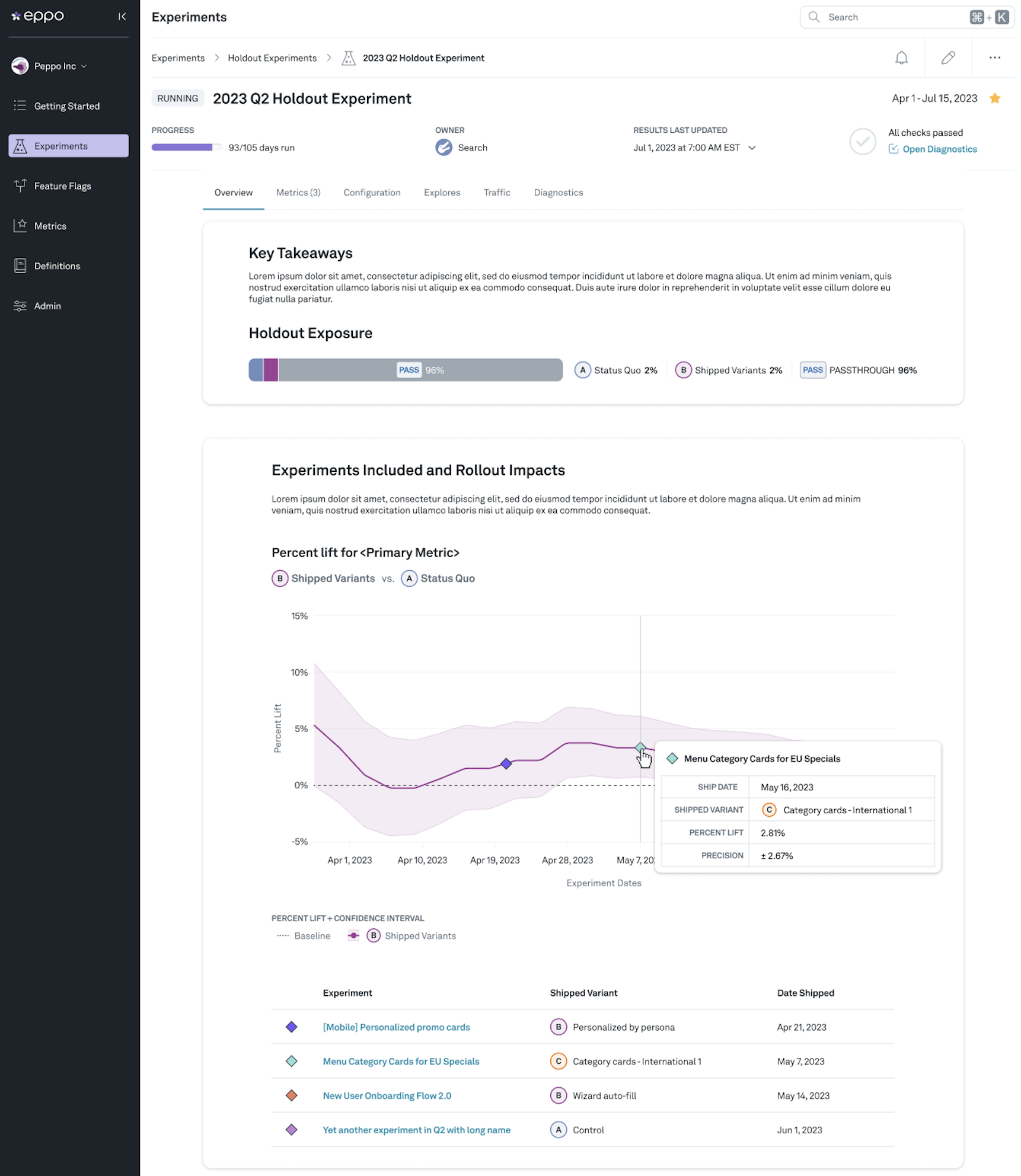Holdout Analysis
Holdout Analysis allows you to understand the aggregate impact of experiments grouped in a Holdout.
Eppo enables you to bring your own holdouts and provides a full-featured analysis of that holdout on key metrics. Holdouts can also be used with Eppo's SDK for an end-to-end managed experiments. Please refer to the Holdouts page for this functionality.
Assignment setup
While Eppo is flexible to how you configure holdouts on your end, we recommend that you set up your holdouts in the following fashion:
- There should be two variants:
status_quoandall_shipped - Traffic should be evenly split between these variants within your withheld traffic group
- Users in
status_quoshould always see the control experience until the holdout is released - Users in
all_shippedshould be exposed to the winning variant of each experiment after it has been concluded and rolled out
Ensure you are logging exposure to the holdout and each variant in an Assignment Source. Eppo requires the following information:
- An
experiment keywhich is the name of the holdout the user is enrolled in - The
variantname that the user is enrolled in for the applicable holdout
With this setup, holdouts will be logged with experiments in AssignmentSQL that is set up in Eppo.

Configuring a holdouts analysis
Create a new holdout analysis over your desired date range by clicking on the "Create Analysis" button on the Analysis tab.
Name the analysis, select which entity is the subject of the analysis (e.g., User), and an assignment source.
Select a holdout key, which will be the key for the experiment.
Configure the analysis with the variation names in your holdout, such as status_quo and all_shipped.
This allows the Eppo generated SQL to correctly query the data in your warehouse.

On the Overview tab, you are able to link experiments to your holdout to provide a comprehensive report of how each experiment impacted the primary Holdout metric and show the experience provided by the winning variants. To do so, go to the Overview tab and add experiments that are part of the holdout. Note that these experiments must be configured in Eppo to be linked.

Holdout analysis
Regardless of whether you use Eppo's SDK or your own, the analysis will detail the impact of the winning variations over the status quo.
